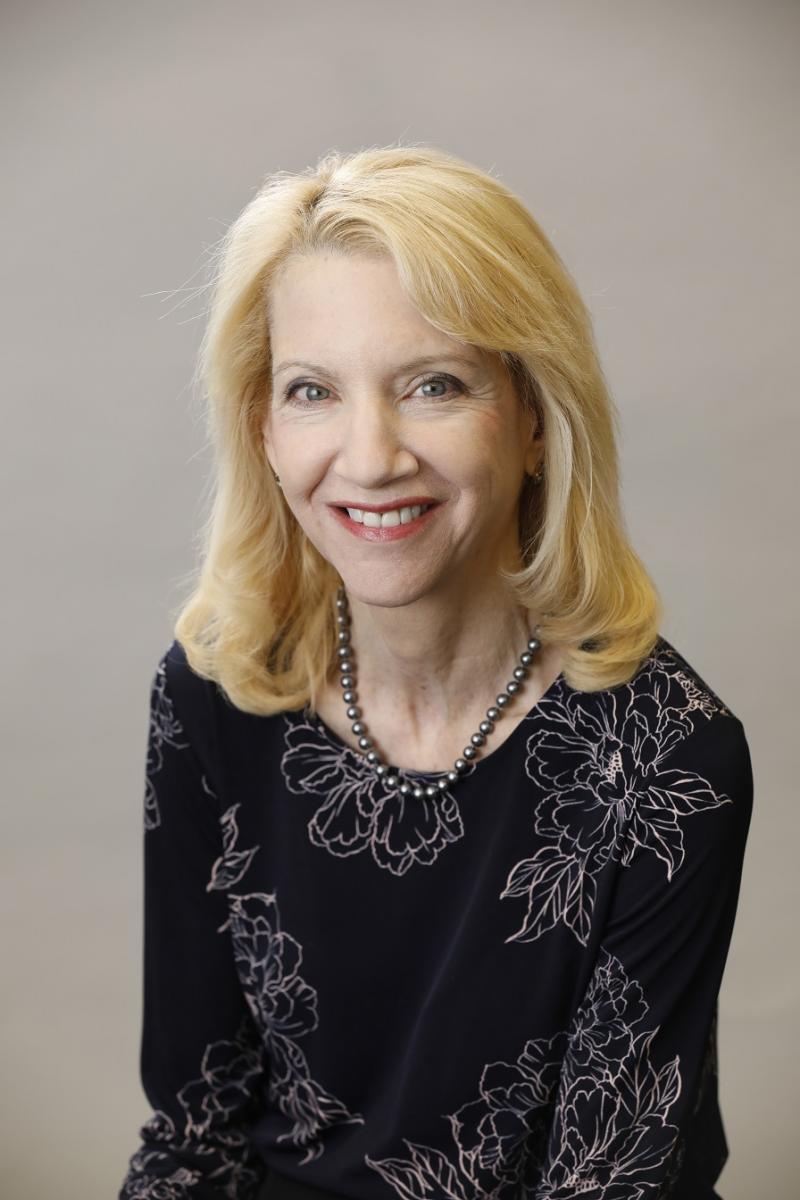
Dr. Jecker's scholarship focuses on:
Justice and health disparities, including justice within and between nations, global health justice, intergenerational justice, justice during COVID-19/pandemics
Sub-Saharan African philosophy and bioethics
Global perspectives in bioethics and philosophy
Social robots and artificial intelligence (AI)
Recent publications:
Jecker NS, Forthcoming. “The Dignity of Work: An Ethical Argument Against Mandatory Retirement,” Journal of Social Philosophy.
Jecker NS, Atuire CA, Ajei MO, 2022. “The Moral Standing of Social Robots: Untapped Insights from Africa.” Philosophy and Technology. ). DOI: 10.1007/s13347-022-00531-5.
Jecker NS, Atuire CA, Ajei MO, 2022. “Two Steps Forward: An African Relational Account of Moral Status.” Philosophy and Technology. DOI: 10.1007/s13347-022-00533-3.
Jecker NS, Atiure CA, 2022. “Global Sharing of COVID-19 Therapies During A ‘New Normal.’” Bioethics. DOI: 10.1111/bioe.13028.
Jecker NS, 2022, “Health Disparities from Pandemic Policy: Reply to Critics,” Journal of Medical Ethics. DOI: 10.1136/medethics-2022-108295.
Jecker NS, Forthcoming, “Too Old to Save? COVID-19 and Age-Based Allocation of Lifesaving Medical Care,” Bioethics. DOI: 10.1111/bioe.13041.
Jecker NS, Forthcoming. “Reducing Disparities in Global Access to COVID-19 Vaccines: An Ethical Argument for an International Pandemic Treaty.” Yale Journal of Biology and Medicine, Special Issue on Vaccines.
Jecker NS, Forthcoming. “Life Extension for Patients with Dementia” In Wareham C, ed., The Ethics of Ageing. Cambridge University Press
Jecker NS, Forthcoming. “Ubuntu and Bioethics." In Imafidon I, ed., Handbook of African Philosophy, Springer
Campelia GD, Suga HK, Kempen JH, Kirkpatrick JN, Jecker NS, Forthcoming. "What the ‘Greater Good’ Excludes: Patients Left Behind by Pre-Operative COVID-19 Screening in an Ethiopian Town.” Developing World Bioethics
Jecker NS, 2022. "African Ethics, Respect for Persons, and Moral Dissent." Theoria. DOI: 10.1111/THEO.12390
Jecker NS, 2022. "Global Sharing of COVID-19 Vaccines: A Duty of Justice, Not Charity." Developing World Bioethics. DOI: 10.1111/dewb.12342
Jecker NS, Au D, 2021. "Does Zero-COVID Neglect Health Disparities?" Journal of Medical Ethics 48: 169-172.DOI: 10.1136/medethics-2021-107763
Jecker NS, Lederman Z, 2021. "Three for Me and None for You? An Ethical Argument for Delaying COVID-19 Boosters." Journal of Medical Ethics. DOI: 10.1136/medethics-2021-107824
Lee B, Jecker NS, Marron JM, Rosenberg A, 2021. "Striving for Equity: Patient Prioritization During a Critical Cancer Drug Shortage." Pediatric Blood & Cancer 68: e29280. DOI: 10.1002/pbc.29280
Jecker NS, 2021. "Vaccine Passports and Health Disparities --A Perilous Journey." Journal of Medical Ethics. DOI:10.1136/ medethics-2021-107491
Jecker NS, Atiure CA, 2021. "What's Yours is Ours: Waiving Intellectual Property Protections for COVID-19 Vaccines." Journal of Medical Ethics 47: 595-598. DOI: 10.1136/ medethics-2021-107555
Jecker NS, Atiure CA, 2021. "Bioethics in Africa: A Contextually Enlightened Analysis of 3 Cases." Developing World Bioethics. DOI: 10.1111/dewb.12324
Jecker NS, Atiure CA, 2021. "Out of Africa: A Solidarity Based Approach to Vaccine Allocation." Hastings Center Report 51(2): 27-36. DOI: 10.1002/hast
Berkman E, Clarke J, Diekema DS, Jecker NS, 2021. "A World Away and Here at Home: A Prioritization Framework for U.S. International Patient Programs." Journal of Medical Ethics. DOI: 10.1136/ medethics-2020-106772
Jecker NS, Takahashi S, 2021. "Shaming and Stigmatizing Healthcare Workers in Japan During the COVID-19 Pandemic." Public Health Ethics 14(1): 72-78. DOI: 10.1093/phe/phab003
Jecker NS, 2021. "Sex Robots for Older People with Disabilities: Reply to Critics" Journal of Medical Ethics, DOI: 10.1136/medethics-2020-107148
Awards:
Selected, Fulbright U.S. Scholar Award (South Africa), University of Johannesburg, 2021-2022
Dr. Jecker was recently awarded a Rockefeller Foundation Fellowship at the Bellagio Center, Como, Italy (2020).
Dr. Jecker serves on the Board of Directors for the International Association of Bioethics (elected 2019).
National and international invited lecturer:
XXVII International Congress on Law and Mental Health, Presentation (with Eisuke Nakazawa) on “Eastern and Western Conceptions of Consciousness Applied to Robotics and Artificial Intelligence,” Lyon, France, July 2022
Rockefeller Foundation, Bellagio Center, Presentation on “African Perspectives on What is a Person, Lake Como, Italy June 2022
International Association of Bioethics, World Congress of Bioethics, Presentations on (1) "Does Zero-COVID Neglect Health Disparities?" (with Derrick Au) and (2) Presentation (with Gina Campelia and Tim Brown) on “ ’No One is Listening’: Epistemicide in Clinical Encounters,” Basel, Switzerland, July 2022
Chinese University of Hong Kong, Centre for Bioethics. Conference on Retirement and Age Discrimination. Presentation on "Is Mandatory Retirement Wrong?" Virtual, December 2020, December 2021
 Dr. Fullerton's work on equity, diversity and inclusion centers on health disparities, specifically as it relates to genomics and precision medicine.
Dr. Fullerton's work on equity, diversity and inclusion centers on health disparities, specifically as it relates to genomics and precision medicine.
Recent publications:
Liu, C, Zeinomar, N, Chung, WK, Kiryluk, K, Gharavi, AG, Hripcsak, G, Crew, KD, Shang, N, Khan, A, Fasel, D, Manolio, TA, Jarvik, GP, Rowley, R, Justice, AE, Rahm, AK, Fullerton, SM, Smoller, JW, Larson, EB, Crane, PK, Dikilitas, O, Weisner, GL, Bick, AG, Terry, MB, & Weng, C (2021). Generalizability of polygenic risk scores for breast cancer in the eMERGE network. JAMA Network Open, 4(8): e2119084. [original work].
West, KM, Cavanaugh, K, Blacksher, E, Fullerton, SM, Umeukeje, EM, Young, B, & Burke, W (2022). Stakeholder perspectives on returning non-actionable APOL1 genetic results to research participants. Journal of Empirical Research on Human Research Ethics, 17(1-2): 4-14 [original work].
Jeske, M, Vasquez, E, Foti, N, Bentz, M, Fullerton, SM, Saperstein, A, Shim, JK, & Lee, SSL (2022). Beyond inclusion: enacting team equity in precision medicine research. PLOS ONE, 17(2):e0263750 [original work].
Kaplan, JM & Fullerton, SM (in press). Polygenic risk, population structure, and ongoing difficulties with race in human genetics. Philosophical Transactions of the Royal Society B (Biological Sciences) [commentary].
Lewis, ACF, Molina, SJ, Appelbaum, PS, Dauda, B, Di Rienzo, A, Fuentes, A, Fullerton, SM, Garrison, N, Ghosh, N, Hammonds, EM, Jones, DS, Kenny, EE, Kraft, P, Lee, SSJ, Mauro, M, Novembre, J, Panofsky, A, Neale, BM, & Allen, DS (in press). Getting genetic ancestry right for science and society. Science [commentary].
Grants:
2U24 HG007307-05 Jarvik/Veenstra/Nickerson/Fullerton/Tarczy-Hornoch (MPI), Evolving our Partnership: The CSER2 Centralized Support Coordinating Center, 8/1/17 - 6/30/21, Role: MPI
1R01 HG010330-01 Lee/Shim (MPI), Ethics of Inclusion: Diversity and Social Justice in Precision Medicine Research, 9/20/18 - 6/30/22, Role: Subcontract PI
5U01 HL120393-04 Psaty/Rice/Rich (MPI), Trans-Omics for Precision Medicine (TOPMed) Data Coordinating Center (DCC), 4/1/14 - 4/30/23, Role: CoI (ELSI Committee Co-Chair)
Rice 6/1/21-5/31/26 0.6 CAL NIH/NHGRI $1,499,904 (Yr 1 Direct) Polygenic Risk Score Diversity Consortium Coordinating Center , Role: Co-Investigator
Teaching/mentoring of research trainees:
Alyna Khan (Public Health Genetics), Chair, Doctoral Committee
National and international invited lecturer:
“Diversifying precision medicine: reflections from the trenches of clinical translational genomics”, Berman Institute of Bioethics, Johns Hopkins University, Virtual Presentation, May 2021
“Polygenic risk, population structure, and ongoing difficulties with race in human genetics” (with Jonathan M. Kaplan), Evolgenome Seminar Series, Stanford Center for Computational, Evolutionary and Human Genomics, Virtual Presentation, November 2021
“Facing future: reflections on the use of population descriptors in genomic research”, Public Workshop, Use of Race, Ethnicity, and Ancestry as Population Descriptors in Genomics Research Committee, National Academies of Science, Engineering, and Medicine, Virtual Presentation, April 2022
Chair Special national service:
2018 Member, NHGRI Special Emphasis Panel, ZHG1 HGR-M M3: Initiative to Maximize Research Education in Genomics: Diversity Action Plan (DAP) (R25)
2018 Member, Planning Committee, National Academies of Sciences, Engineering, and Medicine Roundtable on Genomics and Precision Health, Workshop on Understanding Disparities in Access to Genomic Medicine, June 27, Washington, DC
2019-present Member, Steering Committee, Vanderbilt-Miami-Meharry Precision Medicine and Health Disparities Collaborative (PMHDC)
Guest teaching:
SOC WL 591 Embodiment of Risk, Health Disparities, and Stress Mechanisms (Nurius): Explanation or Intervention?
Ethical Perspectives on Health Disparities Research (2012 to present) GEN ST 391K Jump-Start Yours
Undergraduate Research:
For Incoming Community College Transfer Students (Harris): Research Ethics – Responsible Conduct of Research (2016 to present)
Student mentorship:
2013-2014 Samantha Torres (Public Health Genetics MPH), Chair 2011-2015 Mercy Laurino (Public Health Genetics PhD)
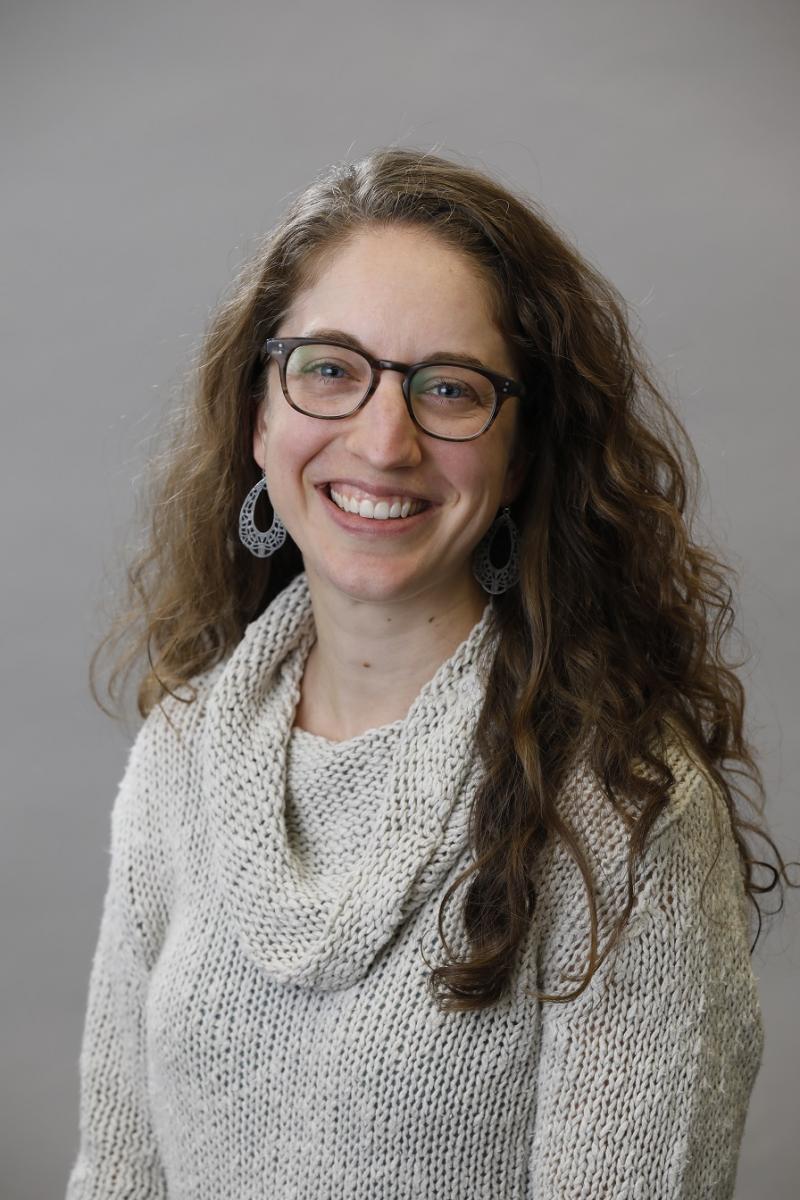 Dr. Campelia's research intersects with feminist bioethics and often attends to marginalized identities and experiences in medicine.
Dr. Campelia's research intersects with feminist bioethics and often attends to marginalized identities and experiences in medicine.
Dr. Roberto Montenegro and Dr. Campelia published "Ongoing Obstacles to Confronting Microaggressions in Medicine", PM&R Sep 2019. You can find more of this work here.
Dr. Campelia is the Ethics Theme Director in a course for medical students at the UW School of Medicine called The Ecology of Health and Medicine, which addresses EDI-related goals in medical school curriculum.
Additionally, Dr. Campelia has been involved in multiple professional organizations that focus on equity, diversity and inclusion: currently a member of the International Network of Feminist Approaches to Bioethics and the Association of Feminist Ethics & Social Theory (FEAST).
Dr. Campelia is also committed to EDI service, including work as a member on the Equity, Diversity, and Inclusion Faculty Development Steering Committee at the UW School of Medicine.
Dr. Campelia currently chairs the Equity, Diversity, and Inclusion Committee in the UW Department of Bioethics & Humanities. In this role, she has taken the lead on our bias response guidelines for the department, reviews and revises departmental policies with an equity lens, and centers marginalized perspectives in B&H events.
 Dr. Trinidad's empirical bioethics research and current doctoral studies center on community engagement, with a particular focus on the ethics and praxis of community-engaged health research with Alaska Native and American Indian communities. Much of her research has been conducted in partnership with tribal health organizations serving Alaska Native people in southcentral and southwest Alaska, as well as the Confederated Salish and Kootenai Tribes of Montana. Ms. Trinidad is a member of Community-Campus Partnerships for Health and the Academy of Communication in Healthcare.
Dr. Trinidad's empirical bioethics research and current doctoral studies center on community engagement, with a particular focus on the ethics and praxis of community-engaged health research with Alaska Native and American Indian communities. Much of her research has been conducted in partnership with tribal health organizations serving Alaska Native people in southcentral and southwest Alaska, as well as the Confederated Salish and Kootenai Tribes of Montana. Ms. Trinidad is a member of Community-Campus Partnerships for Health and the Academy of Communication in Healthcare.
Relevant publications (past 5 years):
Dorfman EH, Trinidad SB, Morales CT, Howlett K, Burke W, Woodahl EL. Pharmacogenomics in context: acceptability and feasibility in rural and tribal community settings. Pharmacogenomics. 2015;16(3):227-37. PMCID: PMC4360986
Trinidad SB, Ludman EJ, Hopkins S, James RD, Hoeft TJ, Kinegak A, Lupie H, Kinegak R, Boyer BB, Burke W. Community dissemination and genetic research: moving beyond results reporting. Am J Med Genet A. 2015;167(7):1542-50. PMCID: PMC4478235
Morales C, Muzquiz L, Azure B, Bodnar B, Finley V, Incashola T, Mathias C, Laukes C, Beatty P, Trinidad SB, James R, Burke W, Pershouse M, Putnam E, Woodahl E. Partnership with the Confederated Salish and Kootenai Tribes: establishing an advisory committee for pharmacogenetic research. Prog Community Health Partnersh, 2016 Summer;10(2):169-70. PMCID: PMC5015644
Hiratsuka VY, Avey JP, Trinidad SB, Beans JA, Robinson RF. Views on electronic cigarette use in tobacco screening and cessation in an Alaska Native healthcare setting. Int J of Circumpolar Health. 2015;74:27794. PMCID: PMC4612470
Avey JP, Hiratsuka VY, Trinidad SB, Tyndale RF, Robinson RF. Perceptions of pharmacogenetic research to guide tobacco cessation by patients, providers and leaders in a tribal healthcare setting. Pharmacogenomics. 2016; 17(4):405-15. PMCID: PMC5558512
Hiratsuka VY, Trinidad SB, Avey J, Robinson RF. Application of the PEN-3 model on tobacco initiation, use, and cessation among American Indian and Alaska Native adults. Health Promot Pract. 2016 May 13; 17(4):471-81. PMCID pending.
Trinidad SB, Shaw JL, Dirks L, Ludman EJ, Burke W, Dillard DA. Perceptions of alcohol misuse among Alaska Native healthcare system stakeholders: a qualitative exploration. J Ethn Subst Abuse. 2019 Feb 4:1-24. doi: 10.1080/15332640.2018.1556766. [epub ahead of print]
Hiratsuka VY, Trinidad SB, Ludman EJ, Shaw JL, Burke W, Robinson RF, Dillard DA. “You actually view us as the experts in our own system”: Indigenous-academic community partnership. Progress in Community Health Partnerships. [accepted Nov 22, 2019]
EDI-Related Funded Research (selected):
1S06GM127911-01, Ferucci (PI), Avey (project PI), 09/06/2018 – 07/31/2022, Cultural Innovations for Recovery in Community-based Learning Circles (NARCH 10): The CIRCLE project is part of the Alaska Native Tribal Health Consortium/ Southcentral Foundation Native American Research Center for Health (NARCH). We are developing a culturally grounded smartphone app to support Alaska Native and American Indian people in recovery from alcohol use disorder, incorporating peer support and community reinforcement approaches into a treatment modality that is feasible for use in rural settings in Alaska. As a co-investigator, I am contributing to study design, qualitative analysis of stakeholder input regarding design and implementation preferences, software specification development, and dissemination.
R01 HG009500, Hiratsuka (PI), 9/05/2017 – 6/30/2020, Community-engaged Research Toward Precision Medicine with American Indian Alaska Native People: This study will identify principles and approaches that can provide the foundation for effective precision medicine research (PMR) in American Indian/Alaska Native (AIAN) communities. In collaboration with our AIAN Community Advisory Groups, we will conduct empiric data collection from stakeholders at each study site; convene local dialogs with tribal leadership at each site and cross-site deliberation to discuss key issues; develop a communication plan to chart key messages, audiences, and communication vehicles; and convene a national meeting to identify areas of consensus and challenges to be overcome in implementing PMR in AIAN communities. As a co-investigator, I am contributing to data collection, analysis, and dissemination.
1S06 GM123545-01, Hiratsuka (PI), 09/15/2017 – 07/31/2021, Population-based Interventions to Improve Behavioral Health in a Tribal Healthcare System (NARCH 9): The Faculty Development Core of the Southcentral Foundation Native American Research Center for Health (NARCH IX) will evaluate and enhance the clinical and translational research skills of individual researchers; build writing skills and publication records; and improve lay dissemination. As a co-investigator, I serve as a writing coach and consultant and assist/advise in manuscript preparation and community outreach/education.
U26 1 IHS0079-01-00, Dillard (PI), 9/15/2013 – 9/14/2019, Southcentral Foundation Research Center for Alaska Native Health (2013 NARCH 7): This Native American Research Center for Health (NARCH) addresses the role of pharmacogenetics in interventions to promote tobacco cessation and sobriety in the Alaska Native and American Indian community in Southeast Alaska. I am developing human subjects protection plans, participating in qualitative design and analysis, aiding in survey development, and participating in dissemination activities. I am also serving as a peer mentor to qualitative researchers at the Southcentral Foundation, an Alaska Native owned and operated healthcare corporation based in Anchorage.
P01 GM116691-01, Thummel /Burke (MPI), 8/1/2016 – 7/30/2021, Program on Genetic and Dietary Predictors of Drug Response in Rural and AI/AN Populations: This program is based in a research partnership comprising the Universities of Washington, Montana, and Alaska (Fairbanks); Group Health Research Institute; and three tribal organizations, Southcentral Foundation (Anchorage, AK), the Confederated Salish and Kootenai Tribes (Flathead Reservation, MT), and the Yukon-Kuskokwim Health Corporation (Bethel, AK). We are investigating the role of gene-environment-drug and polygenic-drug interactions in Alaska Native and American Indian people. I am an investigator in the Partnership Core, which is focusing on developing knowledge about and procedures to support bi-directional capacity development; return of research results to participants and communities; and data sharing. My role includes qualitative research design/conduct/analysis, curriculum development, and communication support.
 Dr. Trotter is a sociologist of medicine whose scholarship is motivated by three things: an empirical commitment to health care as a site of inquiry; a theoretical commitment to understanding the social processes that reproduce inequality in health care; and a methodological commitment to attending to how those processes are reproduced by interactions within the medical workplace.
Dr. Trotter is a sociologist of medicine whose scholarship is motivated by three things: an empirical commitment to health care as a site of inquiry; a theoretical commitment to understanding the social processes that reproduce inequality in health care; and a methodological commitment to attending to how those processes are reproduced by interactions within the medical workplace.
LaTonya Trotter. “A Dream Deferred: Professional Projects as Racial Projects in US Medicine.” In The Routledge Handbook on the American Dream Volume II, edited by Robert Haubart and Mitja Sardoc. New York: Routledge.
October 11, 2021 Podcast episode for The Queens Podcast Lab: https://queenspodcastlab.org/podcast/crisis-in-medicine-latonya-trotter/
Coursework:
Developed and taught new departmental course: “Epidemics And The Politics Of Blame: Eugenic And Racial Logics In Shaping US Health Policy."
National and International lectures:
Promise or Peril? Algorithmic Intelligence and Racial Discrimination in Health Care. The University of Virginia, The Foundations of Biomedical Data Science Seminar Series, Charlottesville, VA, February 11, 2022
When the Safety Net is a Nurse: Organizational Carework in the Context of State Retrenchment. Northwestern University, Department of Sociology, Evanston IL, February 3, 2022
When the Safety Net is a Nurse: Organizational Carework in the Context of State Retrenchment. The University of Washington, Center for Studies in Demography and Ecology, Seattle, WA, November 12, 2021
Regional, National, and International Activities:
Elected Co-Chair, Academic Justice Committee (2022 – 2024), Sociologists for Women in Society
Editorial Board Member (2021-2024), Gender and Society
Steering Committee Member, The Carework Network
Elected Co-Chair, Sister to Sister Committee (2020 – 2022), American Sociological Association
Presentation: “A Dream Deferred: Historicizing the gendered, racial order in the health care professions,” October 19, 2021, Interdisciplinary Association for Population Health Science Annual Meeting
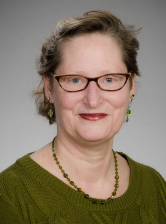 Dr. Starks recently addressed equity and access relate to teaching and professional development in her paper Lesiak A, Griswold JC, Starks H. Turning towards greater equity and access with online professional development. Journal of STEM Outreach, 2021; 4(3):1-7. DOI:https://doi.org/10.15695/jstem/v4i3.05.
Dr. Starks recently addressed equity and access relate to teaching and professional development in her paper Lesiak A, Griswold JC, Starks H. Turning towards greater equity and access with online professional development. Journal of STEM Outreach, 2021; 4(3):1-7. DOI:https://doi.org/10.15695/jstem/v4i3.05.
Other publications:
Liao J, Nishath T, Thevuthasan S, Nieblas-Bedolla E, Christophers B, Starks H, Jackson M, Pagalilauan G. Race/ethnicity trends among U.S. internal medicine residency applicants and matriculants: A cross-sectional study. Annals of Internal Medicine. 2022 Jan 25. Online ahead of print. doi:10.7326/M21-3287
McClintock AH, Starks H, Williams M. Women’s health for a primary care workforce. The Clinical Teacher, Accepted, February 2021.
Bender J, Hairston B, Starks H, Jackson SJ. Listen, partner, encourage: Recommendations for primary care providers from a qualitative study of African American patients with hypertension.
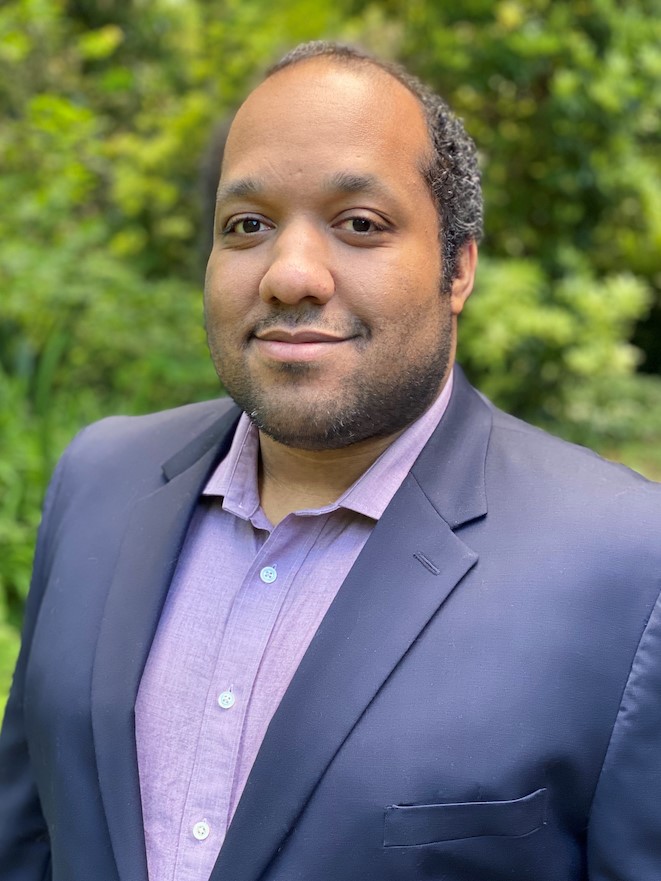 Dr. Brown works at the intersection of biomedical ethics, philosophy of technology, (black/latinx/queer) feminist thought, and aesthetics.
Dr. Brown works at the intersection of biomedical ethics, philosophy of technology, (black/latinx/queer) feminist thought, and aesthetics.
Recent publications:
Klein, E., Versalovic, E., Schönau, A., Montes, N., McCusker, D., Brown, T., & Goering, S. (2021). Integrating Equity Work throughout Bioethics. American Journal of Bioethics, 22(1).
Riaz, S. H., Sankary, L. R., Brown, T., & Morley, G. (2022). Deconstructing Structural Injustices in the Clinic, Classroom, and Boardroom. The American Journal of Bioethics, 22(3), 29-32.
Brown, T., “When Tech Meets Tradition How Wakandan Technology Transcends Anti-Blackness” in Perez, E.,Brown, T., eds (2022). Black Panther and Philosophy: What Can Wakanda Offer the World? John Wiley & Sons.
Perez E., Brown, T., eds (2022). Black Panther and Philosophy: What Can Wakanda Offer the World? John Wiley & Sons.
Publications in process:
A collaborative paper with Gina Campelia and Nancy Jecker on the idea of epistemic violence and epistemicide in clinical encounters (Late-stage draft, almost ready to submit to Bioethics).
National and international invited lecturer:
Moral Enhancement and Racial Justice for National Institutes of Health’s Bioethics Interest Group.
Q&A on Moral Enhancement and Racial Justice for Harvard Medical School’s Master’s level Neuroethics course.
Workshop on Human Enhancement and Disability Rights for Rehab Neural Engineering Lab at the University of Pittsburgh
Regional, National, and International Activities:
Co-chair, 2021 Program Committee, International Neuroethics Society
Chair, Diversity & Inclusion Task Force, International Neuroethics Society
Presentation, “Will Moral Bioenhancement Exacerbate Oppression?” for NIH’s Bioethics Interest Group, International Neuroethics Society
"Fireside Chat: Neuroethics Considerations for Emerging Neurotechnologies,” NeuroAbilities Virtual Symposium: Unlocking the BCI and Neurotech Market for Persons with Disabilities, NeuroAbilities
 Dr. Dudzinski published a 2018 essay titled "White Privilege and Playing It Safe" and was later interviewed by the UW Medicine Newsroom about this topic.
Dr. Dudzinski published a 2018 essay titled "White Privilege and Playing It Safe" and was later interviewed by the UW Medicine Newsroom about this topic.
Publications (select):
Lang, KR, CY Dupree, AA Kon, DM Dudzinski. 2016. Calling Out Implicit Racial Bias as a Harm in Pediatric Care. Cambridge Quarterly of Healthcare Ethics. 25:3, 540-52;
Dudzinski, DM. White privilege & Playing it Safe. Bioethics.net blog. April 11, 2018. http://www.bioethics.net/2018/04/white-privilege-playing-it-safe/
Commentary: Playing it Safe; UW Medicine Newsroom: https://newsroom.uw.edu/postscript/commentary-white-privilege-and-playin...
Dudzinski, DM. 2018. White privilege & Playing it Safe. American Journal of Bioethics. 18:1, 4-5.
Dudzinski, DM. 2013. Ethics Committees and Consultants at Work. Case: Methamphetamine Addiction and Medical Futility. “In the Interest of Fairness” Cambridge Quarterly of Healthcare Ethics 22, 401-402.
Campelia, G, J. Kirkpatrick, J. Shirley, DM Dudzinski. Discharging to the Street: When Homeless Patients Refuse Safer Options. American Society for Bioethics & Humanities Annual Meeting, Pittsburgh, PA. October 26, 2019.
Lang, KR, AA Kon, CY Dupree, DM Dudzinski. “Pediatric Care Providers are Color-Blind” and Other White Lies: The Impact of Implicit Bias and Unconscious Racism on the Care of Children. American Society for Bioethics and Humanities Annual Meeting, San Diego, California. October 18, 2014
Brazg, T and DM Dudzinski. What Does it Mean to Advocate for a Vulnerable Patient in Ethics Consultation? Who Should Do It? International Clinical Ethics Consultation Conference. Paris, France. April 22, 2014
Presenter & Member of Program Committee, The Ethical & Policy Implications of Limiting Growth in Children with Severe Disabilities Symposium. University of Washington Disability Studies Program & Treuman Katz Center for Pediatric Bioethics, May 16, 2007
Professional Development & Diversity Training (select): Implicit Bias Training, Institute of Translational Health Sciences (ITHS), half day, University of Washington, 2017 UW Medicine Leadership Retreat, Diversity, Equity & Inclusion: Quality of Conditions in the Learning Environment, May 2018 National Coalition Building Institute: Leadership for Diversity, day-long training, Seattle, Washington June 19, 2019 Diversity Leadership Symposium, Center for Equity, Diversity, & Inclusion (UW SOM), half-day, Seattle, Washington, December 11, 2019
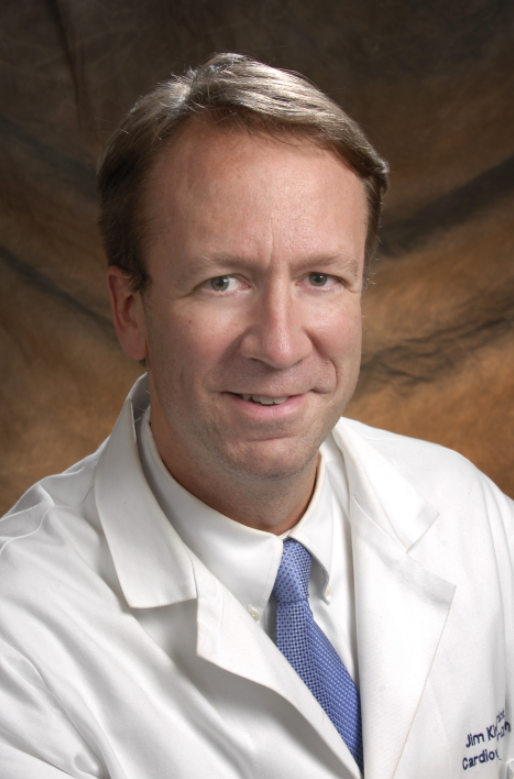 Dr. Kirkpatrick's most recent publication in support of the department's mission of "Health through Social Justice" is:
Dr. Kirkpatrick's most recent publication in support of the department's mission of "Health through Social Justice" is:
Campelia GD, Barg FK, Kirkpatrick JN, Hull SC. Care Labor in VAD Therapy: Some Feminist Concerns. Perspect Biol Med. 2019;62(4):640-656. doi: 10.1353/pbm.2019.0037. PMID: 31761798
 Dr. Sullivan recently completed an investigation into social roots of opioid epidemic linking opioid prescribing, opioid deaths and opioid hospitalizations in Washington with social determinants (education, race, unemployment, etc.) at the zipcode level using data from the WA Department of Health.
Dr. Sullivan recently completed an investigation into social roots of opioid epidemic linking opioid prescribing, opioid deaths and opioid hospitalizations in Washington with social determinants (education, race, unemployment, etc.) at the zipcode level using data from the WA Department of Health.
 Dr. Blacksher's career in bioethics has focused on conceptual, ethical, and empiric questions raised by systematic differences in health outcomes associated with class and race. In addition to her normative scholarship, Dr. Blacksher designs and implements deliberative engagements in collaboration with populations burdened by excess disease to address questions of relevance to them.
Dr. Blacksher's career in bioethics has focused on conceptual, ethical, and empiric questions raised by systematic differences in health outcomes associated with class and race. In addition to her normative scholarship, Dr. Blacksher designs and implements deliberative engagements in collaboration with populations burdened by excess disease to address questions of relevance to them.
Dr. Blacksher published Shrinking Poor White Life Spans: Class, Race, and Health Justice as a target article for The American Journal of Bioethics, which attracted 10 commentaries and earned her an invitation to present at the National Academies of Science's Committee on Rising Midlife Mortality Rates and Socioeconomic Disparities.
She was invited to present as distinguished faculty at the 2018 American Society of Nephrology Kidney Week: Racial Inequalities in Kidney Diseases: Connecting Social Factors to Genetic Risk for her work on APOL1 gene variants and racial disparities in kidney disease.
In 2019, Dr. Blacksher was an invited research group member for The Hastings Center's "How Should the Public Learn? Reconstructing Common Purpose and Civic Innovation for a Democracy in Crisis," and invited to contribute to The Hastings Center Report “Reckoning with Whiteness and Renewing Our Capacities for Civic Listening and Learning in a Polarized and Unhealthy America.”
Select Invited Lectures:
“Concepts of Whiteness and Midlife Mortality Rates and Socioeconomic Disparities.” Presentation to Committee on Rising Midlife Mortality Rates and Socioeconomic Disparities. National Academies of Science. Washington, D.C. July 18, 2019.
“Health Justice at the Intersection of Class and Race: Concepts of Whiteness and Longevity Loss in Low Education White People” The Hopkins Center for Health Disparities Solutions. The Johns Hopkins University. Baltimore, MD. December 9, 2019.
“White Privilege, White Poverty: Barriers to and Opportunities for Civic Learning and Democratic Discourse in a Polarized America.” Research Project Workgroup Member. How Should the Public Learn? Reconstructing Common Purpose and Civic Innovation for a Democracy in Crisis. The Hastings Center. Garrison, NY. November 15-18, 2018.
“Challenges to Talking About APOL1 Gene Variants and Racial Disparities in Kidney Disease,” Racial Inequalities in Kidney Diseases: Connecting Social Factors to Genetic Risk (Distinguished Faculty). American Society of Nephrology Kidney Week 2018. San Diego, CA. October 27, 2018.
“LBJ’s (Not So) Great Society After Fifty Years: A (Poor) Health Legacy.” Medical Center Hour. University of Virginia School of Medicine. Charlottesville, Virginia. February 11, 2015.
Select Publications:
Blacksher E. Shrinking Poor White Life Spans: Class, Race, and Health Justice. American Journal of Bioethics (target article, 10 commentaries) 2018;18(10):3-14. doi:10.1080/15265161.2018.1513585
Blacksher E. 2018. Public Health and social justice: An argument against stigma as a tool of health promotion and disease prevention. In The Handbook of Stigma, Discrimination and Health, Link B, Dovidio J, Major B., eds. New York, NY: Oxford University Press.
Umeukeje E, Young B, Fullerton SM, Cavanaugh K, Owens D, Wilson JG, Burke W, Blacksher E. You Are Just Now Telling Us About This? African American Perspectives on Testing for Genetic Susceptibility to Kidney Disease. Journal of the American Society of Nephrology 2019;30(4):526-530. doi: 10.1681/ASN.2018111091 (selected as part of “Best of JASN” 2019 ASN conference)
Blacksher E. 2016. Obesity Prevention in Children: Media Campaigns, Stigma, and Ethical Considerations (Case Study). Public Health Ethics: Cases Spanning the Globe, Barrett DH, Ortmann LH, Dawson A, Saenz C, Reis A, Bolan G, eds. New York, NY: Springer International Publishing. Available online at: http://www.springer.com/us/book/9783319238463
Blacksher E, Goold SD. 2016. Black-White Infant Mortality: Disparities, Priorities, and Social Justice in Public Health (Case Study). Public Health Ethics: Cases Spanning the Globe. Barrett DH, Ortmann LH, Dawson A, Saenz C, Reis A, Bolan G, eds. New York, NY: Springer International Publishing. Available online at: http://www.springer.com/us/book/9783319238463
Blacksher E, Nelson C, Van Dyke ER, Bassett D, Echo-Hawk AL, Buchwald DS. Conversations about Community-Based Participatory Research and Trust: “We Are Explorers Together” Prog Community Health Partnersh 2016;10(2):305-9. PMID: 27346777. DOI: 1353/cpr.2016.0039.
Blacksher E. Redistribution and Recognition: Pursuing Social Justice in Public Health. Cambridge Quarterly of Healthcare Ethics 2012;21(3):1-12. PMID:22624535. DOI:10.1017/S0963180112000047.
Blacksher E. On Being Poor and Feeling Poor: Low SES and the Moral Self. Theoretical Medicine and Bioethics 2002;23(6):455-470.
 Dr. Monsen's work focuses on health disparities. She uses film to shine light on challenging issues in public health and medicine.
Dr. Monsen's work focuses on health disparities. She uses film to shine light on challenging issues in public health and medicine.
Seattle Art Museum TEDx Talk “Art, Healing and Belonging” 9/20/22
Seattle Asian Art Museum Task Force Member 9/22 to present
University Texas Medical Branch, Galveston TX. 4th Annual Conference on Migrants and Health. Health Disparities and Worlds Apart film. March 2022
Disparities, Equity and Inclusion Series, Psychiatry Grand Rounds, Stanford Family Practice Program, O’Connor Hospital San Jose. 4/20 to present.
 Dr. Lewis-Newby recently joined the “Peds PRIDE” LGBTQ2IA+ Resident Support Group as an Inagural Faculty Member at the University of Washington Department of Pediatrics.
Dr. Lewis-Newby recently joined the “Peds PRIDE” LGBTQ2IA+ Resident Support Group as an Inagural Faculty Member at the University of Washington Department of Pediatrics.
 Dr. Atuire is instrumental in promoting the study of health and research ethics in the African context. His research and publications bring African voices and perspectives to the conversation on global health and ethical issues. In 2019 he co-edited the volume Bioethics in Africa: theories and praxis, (Vernon Press). Apart speaking at high profile academic platforms and contributing to policy documents, Dr. Atuire’s works have appeared in journals including the The Lancet, BMJ Ethics, BMJ Global Health, The Hastings Center Report, Developing World Bioethics, Transcultural Psychiatry and the Journal of African Cultural Studies.
Dr. Atuire is instrumental in promoting the study of health and research ethics in the African context. His research and publications bring African voices and perspectives to the conversation on global health and ethical issues. In 2019 he co-edited the volume Bioethics in Africa: theories and praxis, (Vernon Press). Apart speaking at high profile academic platforms and contributing to policy documents, Dr. Atuire’s works have appeared in journals including the The Lancet, BMJ Ethics, BMJ Global Health, The Hastings Center Report, Developing World Bioethics, Transcultural Psychiatry and the Journal of African Cultural Studies.
Dr. Atuire discusses decolonization at the Health Policy and Systems Research conference: https://www.youtube.com/watch?v=7G1rspfUa0M [youtube.com]
WHO Ethics and Policy Summit: https://www.youtube.com/watch?v=O-SpMod2vYA [youtube.com] (see from 2:52:00 onwards)
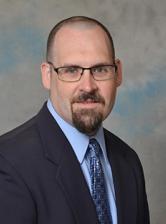 Dr. Robey continues to work on compassionate approaches to care for drug addicted individuals. His methamphetamine treatment study was recently featured on NPR and STAT News.
Dr. Robey continues to work on compassionate approaches to care for drug addicted individuals. His methamphetamine treatment study was recently featured on NPR and STAT News.
Weaver SC, Byrne SS, Bruce H, Vargas OL, Robey TE. “Prospective case-control study of contact tracing speed for emergency department-based contact tracers.” West J Emerg Med. 2022 Aug 24;23(5):623-627. PMID: 36205662
Fatcher, Lev. “The meth crisis is worse than ever, but new treatments might be around the corner” STAT News Sept 16, 2022. https://www.statnews.com/2022/09/16/new-treatments-for-meth-addiction-could-be-on-the-way/ [statnews.com]
"Could monoclonal antibodies be a game changer for treating meth addiction?” WBUR Here and Now September 15, 2022. https://www.wbur.org/hereandnow/2022/09/15/monoclonal-antibodies-meth [wbur.org]
 Dr. Fourie's research and teaching center on injustice and its ethical implications for health, healthcare, and medicine. She focuses especially on injustice from a feminist and intersectional feminist perspective. Her most recent publication raises the concern that conceptions of justice used in bioethics are (still) not amenable to feminism: “How could anybody think that this is the appropriate way to do bioethics? Feminist challenges to conceptions of justice in bioethics”. A link to the open access chapter, part of the edited volume The Routledge Handbook of Feminist Bioethics, can be found here.
Dr. Fourie's research and teaching center on injustice and its ethical implications for health, healthcare, and medicine. She focuses especially on injustice from a feminist and intersectional feminist perspective. Her most recent publication raises the concern that conceptions of justice used in bioethics are (still) not amenable to feminism: “How could anybody think that this is the appropriate way to do bioethics? Feminist challenges to conceptions of justice in bioethics”. A link to the open access chapter, part of the edited volume The Routledge Handbook of Feminist Bioethics, can be found here.
She is currently working on a book manuscript preliminarily titled, “Securing Health Equity: Philosophical Foundations for Social Justice in Public Health and Health Care”. Presentations based on this project are scheduled for the American Society of Bioethics and Humanities’ Annual Conference (October 2022) and the American Public Health Association’s Annual Conference (November 2022). The title of the presentations is “We need equality, not just equity”.
In April 2022 Dr. Fourie co-organized an interdisciplinary symposium on Race, Health, and Justice with George Yancy (Emory) as the keynote speaker. The symposium was recorded and can be watched on YouTube.
For February 2023, r. Fourie is organizing a symposium on Black feminist thought centered on the work of Jennifer C. Nash (Duke). Nash will be the keynote speaker; another confirmed speaker is Kathryn Sophia Belle from Penn State. In preparation for the symposium, she secured funding for and organized a summer reading group (August-September 2022) for faculty and graduate students to read Nash’s two most recent books together.
 Dr. King’s work around diversity has been participating in Spiritual Health departmental readings/discussions about six times a year, participating in Supportive Care Leadership discussions about six times a year, reading books (e.g., Caste and God is a Black Woman), participating in a denominational clergy short day anti-racism training, and participating in webinars such as 4 Kevin Jenkins virtual DEI workshops sponsored by the Washington Hospital Association, “Recognizing Inequities in Serious Illness & End of Life Care” sponsored by the Washington Foundation for Health Care Improvement, “Education, Truth, and Responsibility—Blackface,” and “Whiteness in Organizations.”
Dr. King’s work around diversity has been participating in Spiritual Health departmental readings/discussions about six times a year, participating in Supportive Care Leadership discussions about six times a year, reading books (e.g., Caste and God is a Black Woman), participating in a denominational clergy short day anti-racism training, and participating in webinars such as 4 Kevin Jenkins virtual DEI workshops sponsored by the Washington Hospital Association, “Recognizing Inequities in Serious Illness & End of Life Care” sponsored by the Washington Foundation for Health Care Improvement, “Education, Truth, and Responsibility—Blackface,” and “Whiteness in Organizations.”


 Dr. Fullerton's work on equity, diversity and inclusion centers on health disparities, specifically as it relates to genomics and precision medicine.
Dr. Fullerton's work on equity, diversity and inclusion centers on health disparities, specifically as it relates to genomics and precision medicine.  Dr. Campelia's research intersects with feminist bioethics and often attends to marginalized identities and experiences in medicine.
Dr. Campelia's research intersects with feminist bioethics and often attends to marginalized identities and experiences in medicine.  Dr. Trinidad's empirical bioethics research and current doctoral studies center on community engagement, with a particular focus on the ethics and praxis of community-engaged health research with Alaska Native and American Indian communities. Much of her research has been conducted in partnership with tribal health organizations serving Alaska Native people in southcentral and southwest Alaska, as well as the Confederated Salish and Kootenai Tribes of Montana. Ms. Trinidad is a member of Community-Campus Partnerships for Health and the Academy of Communication in Healthcare.
Dr. Trinidad's empirical bioethics research and current doctoral studies center on community engagement, with a particular focus on the ethics and praxis of community-engaged health research with Alaska Native and American Indian communities. Much of her research has been conducted in partnership with tribal health organizations serving Alaska Native people in southcentral and southwest Alaska, as well as the Confederated Salish and Kootenai Tribes of Montana. Ms. Trinidad is a member of Community-Campus Partnerships for Health and the Academy of Communication in Healthcare. Dr. Trotter is a sociologist of medicine whose scholarship is motivated by three things: an empirical commitment to health care as a site of inquiry; a theoretical commitment to understanding the social processes that reproduce inequality in health care; and a methodological commitment to attending to how those processes are reproduced by interactions within the medical workplace.
Dr. Trotter is a sociologist of medicine whose scholarship is motivated by three things: an empirical commitment to health care as a site of inquiry; a theoretical commitment to understanding the social processes that reproduce inequality in health care; and a methodological commitment to attending to how those processes are reproduced by interactions within the medical workplace.  Dr. Starks recently addressed equity and access relate to teaching and professional development in her paper Lesiak A, Griswold JC, Starks H. Turning towards greater equity and access with online professional development. Journal of STEM Outreach, 2021; 4(3):1-7. DOI:
Dr. Starks recently addressed equity and access relate to teaching and professional development in her paper Lesiak A, Griswold JC, Starks H. Turning towards greater equity and access with online professional development. Journal of STEM Outreach, 2021; 4(3):1-7. DOI: Dr. Brown works at the intersection of biomedical ethics, philosophy of technology, (black/latinx/queer) feminist thought, and aesthetics.
Dr. Brown works at the intersection of biomedical ethics, philosophy of technology, (black/latinx/queer) feminist thought, and aesthetics. Dr. Dudzinski published a 2018 essay titled "
Dr. Dudzinski published a 2018 essay titled " Dr. Kirkpatrick's most recent publication in support of the department's mission of "Health through Social Justice" is:
Dr. Kirkpatrick's most recent publication in support of the department's mission of "Health through Social Justice" is: Dr. Sullivan recently completed an investigation into social roots of opioid epidemic linking opioid prescribing, opioid deaths and opioid hospitalizations in Washington with social determinants (education, race, unemployment, etc.) at the zipcode level using data from the WA Department of Health.
Dr. Sullivan recently completed an investigation into social roots of opioid epidemic linking opioid prescribing, opioid deaths and opioid hospitalizations in Washington with social determinants (education, race, unemployment, etc.) at the zipcode level using data from the WA Department of Health. 


 Dr. Atuire is instrumental in promoting the study of health and research ethics in the African context. His research and publications bring African voices and perspectives to the conversation on global health and ethical issues. In 2019 he co-edited the volume Bioethics in Africa: theories and praxis, (Vernon Press). Apart speaking at high profile academic platforms and contributing to policy documents, Dr. Atuire’s works have appeared in journals including the The Lancet, BMJ Ethics, BMJ Global Health, The Hastings Center Report, Developing World Bioethics, Transcultural Psychiatry and the Journal of African Cultural Studies.
Dr. Atuire is instrumental in promoting the study of health and research ethics in the African context. His research and publications bring African voices and perspectives to the conversation on global health and ethical issues. In 2019 he co-edited the volume Bioethics in Africa: theories and praxis, (Vernon Press). Apart speaking at high profile academic platforms and contributing to policy documents, Dr. Atuire’s works have appeared in journals including the The Lancet, BMJ Ethics, BMJ Global Health, The Hastings Center Report, Developing World Bioethics, Transcultural Psychiatry and the Journal of African Cultural Studies.



 We are committed to serving all students.
We are committed to serving all students. The purpose of this endowed scholarship is to support University of Washington undergraduate and/or graduate students from diverse social and experiential backgrounds, who are working in interdisciplinary space to study the social, ethical, and policy implications of health research and/or healthcare. Preference shall be for students with affiliation to the Department of Bioethics & Humanities, though students from other UW departments are eligible.
The purpose of this endowed scholarship is to support University of Washington undergraduate and/or graduate students from diverse social and experiential backgrounds, who are working in interdisciplinary space to study the social, ethical, and policy implications of health research and/or healthcare. Preference shall be for students with affiliation to the Department of Bioethics & Humanities, though students from other UW departments are eligible.